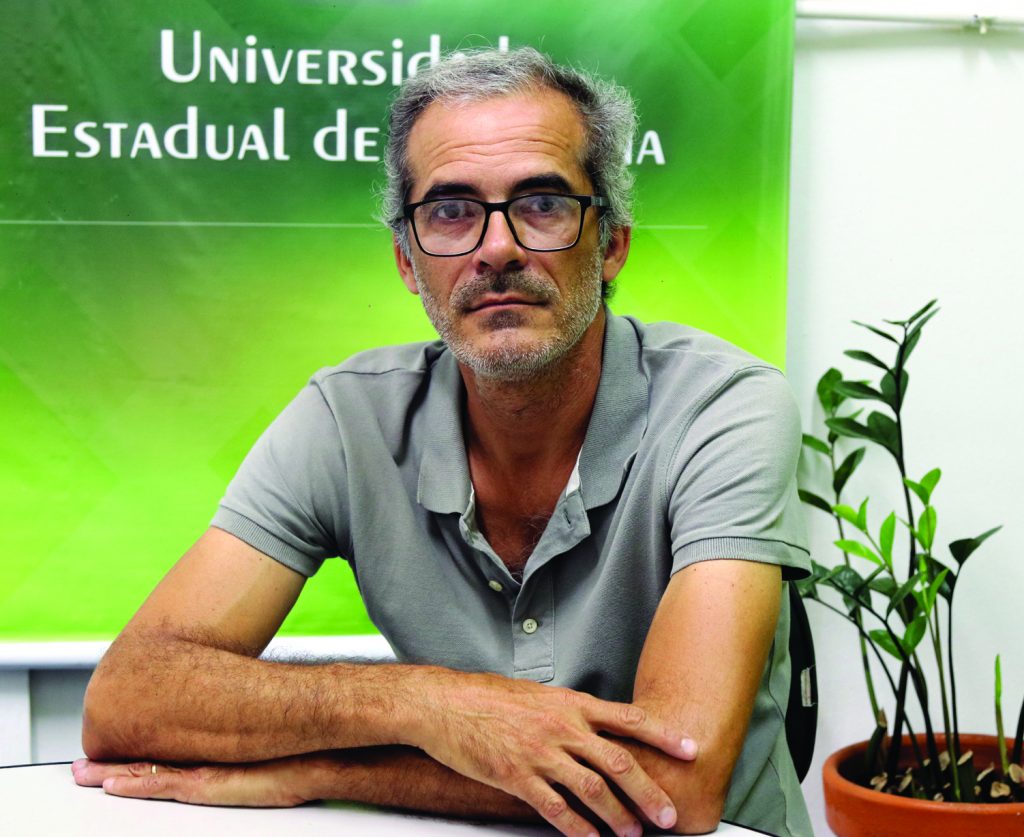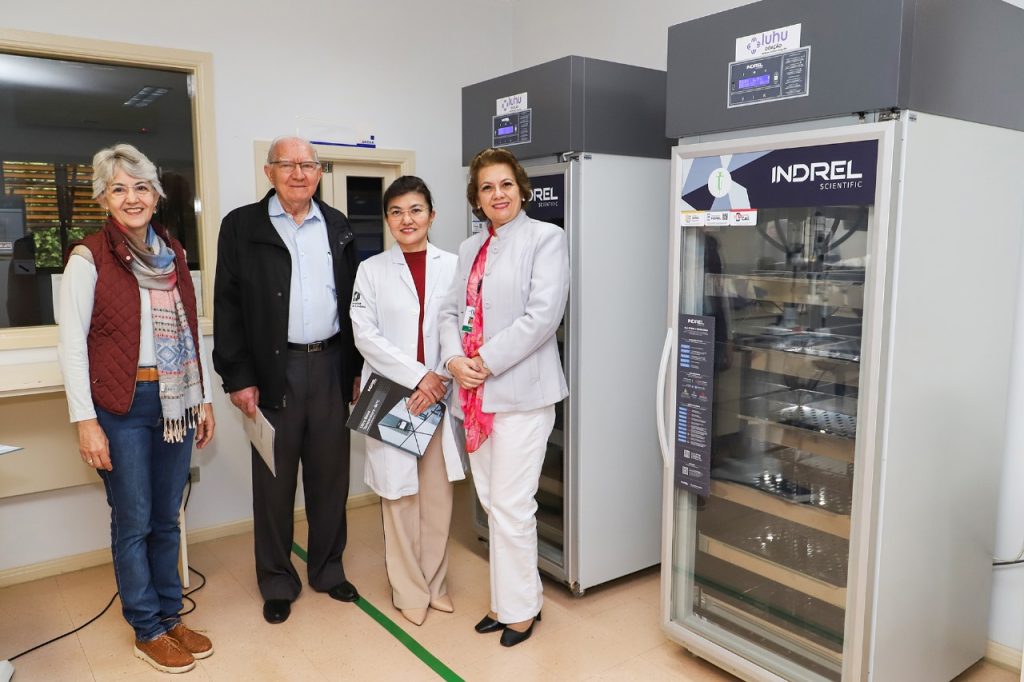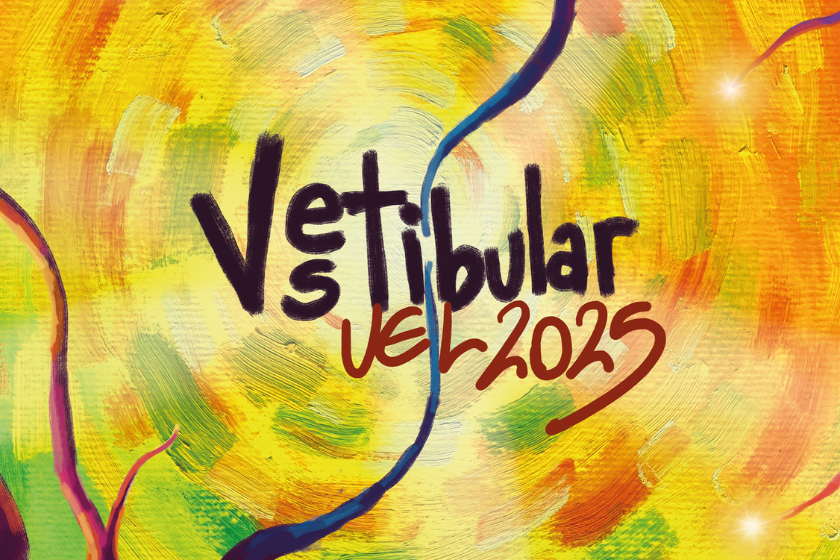[EN] Killing in the name of life?
[EN] Killing in the name of life?
Matéria originalmente publicada no Jornal Notícia, edição 1420, de junho de 2023. Traduzida pela equipe do Paraná Fala Inglês.Professor Marcos Alexandre Gomes Nalli, of the Philosophy Department (CLCH), is leading two research projects centered on the same concept: “Biopolitics as Biotechnics”, which began in 2017, and “Life as an object of Biopolitics”, launched in 2020. Both projects engage undergraduate students from the Scientific Initiation Program (IC). In March, the professor was among the researchers awarded a productivity grant by the National Council for Scientific and Technological Development (CNPq), underscoring the relevant contribution of his studies. However, this recognition. was not his first.
Professor Nalli has had a longstanding academic journey dedicated to studying the works of philosopher, social theorist, and historian of ideas Michel Foucault (1926-1984), who explored Biopolitics in the 70s. The French intellectual was the focus of Nalli’s master, doctorate, and postdoctoral studies, all completed by 2008.
According to the researcher, the concept of Biopolitics emerged in the 1910s and underwent three distinct “movements”. It originated in Germany up until the 1930s,; then evolved in France and Switzerland during the 1950s and 1960s, adopting a more humanist approach. FInally, in the 1960s and 1970s, it took an Anglo-Saxon perspective, more concerned with ecology. Foucault had already developed his ideas on social control mechanisms, such as schools, prisons, and mental institutions, when he introduced the concept of “biopower” – the exercise of power over the lives (and bodies) of individuals.
The professor explains that, interestingly, Foucault first introduced the term “Biopolitics” during a visit to Brazil, in a lecture at the State University of Rio de Janeiro (at the time, the State University of Guanabara/UEG), on October 30th, 1974. In 1976, the philosopher published “Society Must Be Defended”, a book addressing state-sponsored racism (such as Nazism) and revisiting the concept. In 1979, he published “The Birth of Biopolitics”. The subject was then temporarily set aside, only to be revisited in the mid-1990s by Italian philosopher Giorgio Agamben, among others.

Paradox
As the name suggests, Biopolitics is a “politics for life”. It centers on various aspects of human existence such as birth rates, diseases, mortality, the environment, and the state’s involvement in each of these areas. The aim is to promote and protect life. However, therein lies the paradox: why, then, is there killing? This paradox can be illustrated by a thought from the German playwright Bertolt Brecht (1898-1956): “There are many ways to kill a person. Stabbing with a dagger, depriving of bread, neglecting their illness, condemning to poverty, overworking to exhaustion, driving to suicide, sending to war, and so on. Only the first is prohibited by our state.”
The resolution of the Biopolitics paradox, in fact, leads to its “Gordian knot”, asserts Professor Marcos Nalli. The problem lies precisely there: life, but not for all. Bearing this question in mind, the professor delved into eugenics during his master’s studies, referencing a law from the 1930s that mandated the compulsory sterilization of women with mental illnesses in Scandinavian countries. Between the 1930s and 1960s, Sweden, Denmark, Finland and Norway reportedly forcibly sterilized around 74,000 women. According to the researcher, in France, due to the crises during World War II, a law suspended the provision of food to asylums.
What history shows, therefore, is a broad sense of racism beyond ethnicities, which can affect any social group. The professor himself speaks of a “market racism”, whereby the state and private enterprise deliberately align to control and oppress individuals. An example is the transformation of prisoners into cheap labor, or slaves, as happened in Nazi Germany and in the dictatorships of Argentina and Chile.
In Brazil, Getúlio Vargas responded to an attack by the German Navy on a Brazilian ship with Decree-Law 4166 (of March 11, 1942). It established that “the assets and rights of German, Japanese, and Italian subjects, both individuals and legal entities, shall be held liable for the damages” resulting from Axis aggression.
In other words, it is racism that extends far beyond the inequality of opportunities for market integration. Nalli asserts that the market exploits human dignity itself, as evidenced by reports of conditions akin to slavery, which are still distressingly common. For the professor, outsourcing is also a segregationist policy, as are other forms of precarious labor relations.
Problematization
The researcher also notes that Biopolitics is interdisciplinary, meaning it is open to studies from various other fields such as History, Sociology, Law, Geography, and Architecture. However, it is not a discipline per se, but rather a conceptual framework. There have been debates, scientific conferences, publications, all revolving around evolving issues and knowledge, within a network of researchers from different fields. Professor Nalli’s projects, for instance, also involve graduate students at all levels, other faculty members, and even a researcher from Spain, besides holding bi-weekly meetings with a Working Group.
Tradução: Ana Paula Luiz do Santos Aires. Revisão: Raquel Prete. Supervisão: Fernanda Machado Brener. Programa Paraná Fala Inglês (PFI).
Matéria originalmente publicada em português na edição nº 1420 do Jornal Notícia: Matar em nome da vida?.




